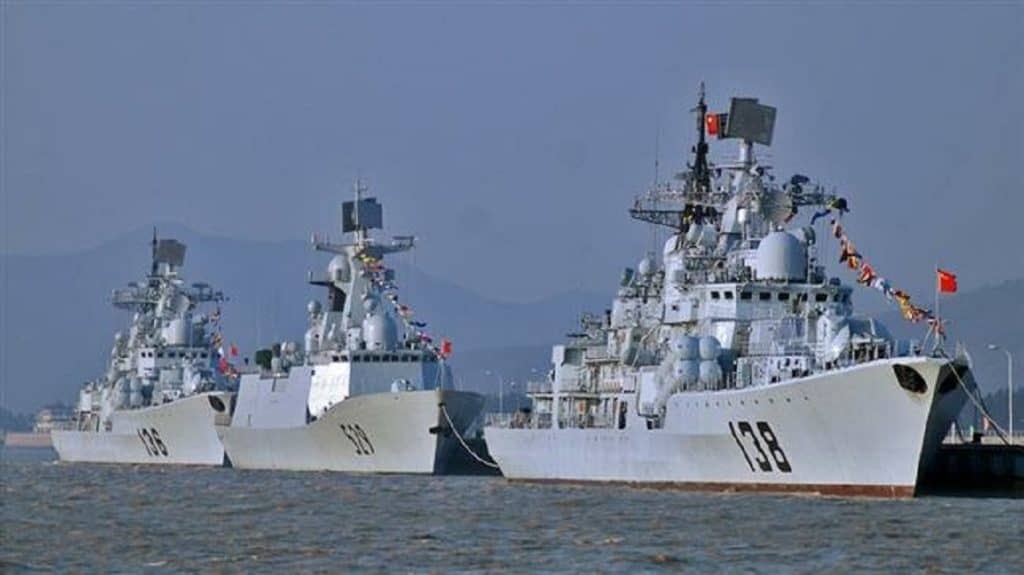By Denis Korkodinov
The joint naval exercises held at the end of December 2019, in which Russia, China and Iran took part, were a clear signal that Beijing was much closer to the countries of the Middle East than the United States expected. China has shown clear commitment to its plans to spread influence in the Middle East region. At the same time, Moscow and Tehran are assisting Beijing in achieving this goal.
Naval exercises have allowed China to question the US leadership in regional security in the Middle East and the Persian Gulf, thereby explicitly informing the international community of its intention to strengthen the rivalry between the two major powers of the world. Particularly noteworthy is the fact that through the exercises Beijing demonstrates its readiness to ensure the safety of shipping and, above all, oil tankers, which makes the international coalition under the auspices of Washington inexpedient.
This is a completely logical desire of China, which, being in a state of trade war, seeks, first of all, to protect its own economic interests. And control over strategic shipping lanes is a priority in the reanimation project of the Chinese economy.
It is worth noting that the need to protect shipping has become more urgent after a series of attacks on oil tankers, which led to sharp fluctuations in world prices for black gold. To this end, the United States, the United Arab Emirates, Saudi Arabia, Bahrain, the United Kingdom and Australia formed an alliance aimed at ensuring maritime security.
However, the Sino-Russian-Iranian cooperation project allowed taking control of the straits into their own hands, which created the conditions for competition with the American alliance, which is unlikely to wish to voluntarily give up the “palm”. As a result of this, new hotbeds of open confrontation may arise between members of competing alliances for control of the straits.
Meanwhile, the interest of Beijing, Moscow and Tehran is not just to create an alternative to the international alliance under the auspices of the United States, but to completely supplant this alliance, making it an absolutely meaningless structure. At the same time, Beijing intends to build its own relations with the countries of the “American axis”, systematically luring them to its side. This will allow the Chinese leadership to rapidly develop cooperation with regional players not only in the military sphere, but also in the economic sphere.
Since the process of creating international alliances was somehow triggered by the confrontation between the United States, Saudi Arabia, on the one hand, and Iran, on the other hand, the Ayatollah regime is extremely interested in making China, which aims to gain a foothold in the region, become its reliable ally. This is also necessary because Beijing, along with Moscow, is a unique mediator in the negotiation process with the White House administration and Riyadh and can initiate an international conference to mitigate regional tensions.
Nevertheless, such a conference, despite its necessity, is an extremely difficult event, because if it is held, the United States and Saudi Arabia will have to agree with the Iranian nuclear program and turn a blind eye to the process of enrichment of Iranian uranium. If this happens, the nuclear deal with Tehran will lose its meaning. And in this case, the White House administration will have to come to terms with the fact that a new nuclear power will appear in the Middle East. In addition, Washington will have to significantly influence Israel, which is very jealous of Iran’s nuclear ambitions.
Opening the Iranian file under the influence of China is impossible without resolving conflicts in Lebanon and Iraq, in which the United States plays the role of a direct provocateur of protests. In other words, Washington will have to contribute to the neutralization of the protest movement in Beirut and Baghdad and yield to the policy of pro-Iranian groups, which in the present conditions is almost impossible.
(The opinions expressed in this article are solely those of the author and do not necessarily reflect the views of World Geostrategic Insights)







